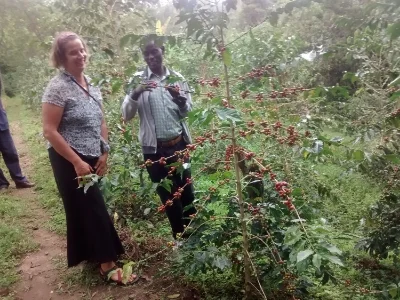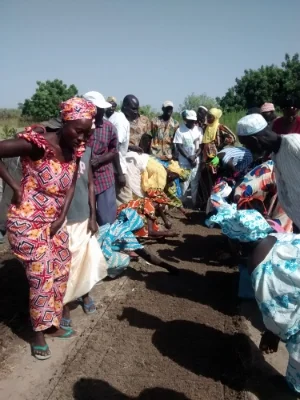Link for more ecotone photo highlights from Ethiopia
After the last quince was harvested and potato dug at my farm in La Valle this autumn, I hopped across the pond, to discover the places and spaces where food, farming and public health meet—supporting work with NCBA-CLUSA (National Cooperative Business Association) Farmer to Farmer Program in Senegal and in Ethiopia with Just Coffee Cooperative and a UW –Ethiopia Twinning Partnership program. This was my fifth trip to Africa and third adventure in Senegal with the Farmer to Farmer Program, though my first time in Ethiopia. With each experience new life is danced and breathed into me.
Trading Valton silt loam for mangrove mud, calm for chaos, I always forget that Africa seems to require a certain initiation period even amongst the most seasoned travelers. Ethiopia demanded self-direction and motivation, in part because my project partners left me on my own once, I arrived. This stood in stark contrast to the comprehensive logistical support from NCBA-CLUSA and the Farmer to Farmer program. What I also love about the farmer to farmer program is its ground-up, peer to peer approach. Your work is based on the needs, skills, and interests of the farmers—and not surprisingly, these needs, skills, and interests are characteristic of those in Wisconsin and the U.S.
In both Ethiopia and Senegal, I was reminded of ecotones—those transition zones between communities, ecosystems and/or cultures containing the characteristic species of each, a place of danger/tension or opportunity, a testing ground. I will try and summarize both the tensions and opportunities that emerged throughout my experiences supporting farmer to farmer projects in Ethiopia and Senegal.
Greywater filtration system for coffee processing at FERRO Cooperative in Ethiopia. Photo by Erin Schneider
Tension/Opportunity – The conundrum: to wash or not. Historically in Ethiopia (where coffee originated), coffee processing entailed creating a berm area at the base of the coffee plants, wherein the fruit would drop upon ripening and be sun dried. Growers would then go through and harvest the finished/unwashed fruit for depulping, grading, and cupping. Modern consumers prefer coffee which has been fermented in water to remove mot of the fruit. While buyers might prefer the end roast of washed coffee, the washing process itself uses a lot of water in an area of the country where some people don't even have access to reliable drinking water. Up until about ten years ago, many co-ops did not have water filtration in place and the wash water from processing beans rendered surface water too acidic for drinking and for fish and other aquatic organisms. Now the government mandates that all coffee washing include infrastructure for water treatment/greywater, though not all water filtration is as elaborate or well designed as FERRO Cooperative's greywater system. While unwashed processing takes longer (up to 12 days) and requires more labor time with sorting, the environmental impacts may outweigh losses from labor time.
In Senegal, tensions and opportunities continue to flow in how to best deal with too much or too little water. One of the impacts of climate change in Senegal is shifting rain patterns—which can be devastating in terms of planting. During my farmer to farmer assignment we explored a few low to no cost methods for water conservation through mulching and designing earthworks such as swales, berms, and raised beds to counter impacts from high salinity. These earthworks can improve soil water infiltration when too much water is present, slow down run-off and improve water storage. But challenges remain with access to tools such as shovels, mattocks, and broadforks. I am reminded not to take for granted water for granted. In Wisconsin, we are fortunate to have such diverse and rich sources of fresh water ecosystems. The challenge we need to navigate is around ensuring water quality for current and future generations.
Tension/Opportunity – Fair Trade and Living Wage. On the coffee side of the equation, there are conflicting regulations with organic and fair trade certifications, especially with the U.S. and European markets. When visiting with Tsegaye, General Manager with Sidama Coffee Federation Union, he relayed that growers need $3/lb to cover costs, which is way above the current commodity price of $1.70 for coffee on the NY Stock Exchange. Production expenses keep increasing as do food prices, and combined with the devaluation of the Euro, it is difficult for growers to earn a living wage. So with the fair trade premium of an addition at $0.20 - $0.30 cents, propped up further by $0.15 - $0.40 for organic certification, growers still barely meet their break even price point for making a living. We can all do our part to seek and align with businesses that go beyond the fair trade minimum and pay farmers a living wage.
From a vegetable standpoint in Senegal, I observed that the women farmers are all growing the same varieties of vegetables at the same time and often for the same markets. As a result markets are flooded with the same product and people shop for the cheapest deal—this does not support a living wage for farmers. Secondly, soils become tired over time from planting the same crops and crop varieties and seed diversity is lost. I think opportunities are ripe for NGO's and researchers to work in partnership with farmers in helping maintain and grow the integrity of the local seed supply.
I think all farmers struggle with finding the balance between product pricing, scale, and markets and we are constantly tweaking, sourcing, and saving seed varieties. How to best manage for the short term needs while at the same time balancing production systems and balance sheets for the long term is a dance that every farmer faces regardless of where you live in the world or sit on the agricultural value chain.
Touring coffee grove at Aregesh Lodge in Ethiopia with Genene, Sidama Region's Bureau of Marketing and Promotion.
Tension/Opportunity – Collaborating with government officials. When I arrived in Ethiopia, I discovered my main contact and inroad to connecting with coffee cooperatives in Ethiopia was sick and that I would need to find transportation and translation support for the next four days. I was dropped off at the government office, wherein lay the key to my trip success. You could cut a knife through the air, the tension was so thick during my initial meeting with the Bureau of Marketing and Promotion in the Sidama region. (Imagine the movie Office Space only darker and danker). Genene was is a bit of a wild card, though in the end turned out to be a friendly and lively ally who helped me gain a better understanding of how communication works (or doesn't) in the region and learn to just relax, wait and enjoy, because in Ethiopia there is a lot of waiting so you might as well relax. He is also an opportunist and once he learned more about why I was here, he saw the potential to cash in on the experience (both figuratively and literally). I, in turn, discovered negotiating skills I didn't know I had.
In Senegal the ecotone was subtler. There is an elaborate network of local NGO's and government projects that support women farmer associations in providing training for vegetable production, capital for installing wells, and fences, and support in accesing land and seed. This has enabled women to earn an income during the dry season, though opportunities to shift how support is delivered abound. I have observed from past trips that a lot of women farmer associations in Senegal could benefit from learning from what their neighboring networks are up to, with for example, tool design, composting, crop rotation and seed collecting. There is fertile ground for hosting summits or cross-trainings that involve more peer to peer learning in partnership with experts.
Tension/Opportunity – Development or Empowerment? I observed inroads and outroads in the name of progress and development dotted all along the Ethiopia and Senegal landscapes. Hectares of floral greenhouses perched on prime farmland, goat and meat processing megafarms, cement factories, salt fields and gold mines are all designed to prop up jobs and the local economy, though in reality these owned by foreign investors buying land on the cheap, then importing labor at the expense of local citizens (See, Grain, the Great Food Robbery Report). Broadly, a question worth exploring is how can any farmer make a profit when there are government sanctioned trade policies that require countries to open their borders to outside imports in order to accept financing/debt re-structuring? Trade that subsidizes product and equipment dumping compromises indigenous seed supplies, dis-enfranchizes local expertise by sending in outside consultants; small holder farmers can hardly be expected to compete in such a market. It's enough to make one's head spin in despair! Yet, I discovered in both Ethiopia and Senegal that when you hone in on a few interested and engaged local growers/community members, and find areas of shared opportunity (soil, land, potatoes, living wage, clean water etc.) – the story shifts from food insecurity and scarcity to one of abundance. Both the Farmer-to-Farmer Program and The UW – Ethiopia Twinning partnership model is a breath of fresh air when it comes to focusing in on the ground, drawing from local needs and wisdom and co-designing projects that meets these needs. Policy change and international trade agreements aside, where there is opportunity is in helping support local community groups and growers directly on the ground with shared expertise.
Seed bed preparation for an insectory demonstration plot at Ndoimby village in Senegal. Photo by Erin Schneider
At home in Wisconsin, what if tensions around high capacity wells, frac sand mining, or even renewable energy and job creation, could be seen as opportunities? This is close to home for our farm, as there are interests at play to open up parts of NW Sauk County (where our farm is located), for frac sand mining. We see this tension as a chance to reach out to neighbors with very different perspectives and worldviews to find shared interest(s).
My work supporting agriculture abroad (in Senegal in particular) reminds me that science and technique and the details of production can only get you so far when it comes to growing food—you also need a little love, commitment for the long haul, and pause for celebration (a little luck and timing never hurt too!). I have also learned to count my successes in increments, engage in small steps toward big impact, laugh and not cry when the monkeys steal your ingera bread, and celebrate the flight and passing of each day in the hundreds of birds witnessed along African flyways - abyssini rollers, herons, curlews, kingfishers, pelicans, geese, ducks, egrets, with patterns and colors that could light the night sky.
I am grateful for the opportunity that both Wisconsin and National Farmers Unions has catalyzed for me in growing professionally. I have been able to explore ways to balance interests and love of people, plants and dirt both locally at our farm and internationally at our farm, volunteering with the F2F program, and with the World Farmer Organization's Women Committee. Being exposed to other farmers and agricultural professionals from around the world continues to be a great opportunity to explore the eco-tones of economics, ecology, and culture. The opportunity to learn, strengthen networks, share views, and bring home some new ideas continues to breathe and dance new life into me. I look forward to learning and sharing the next good dance with you.
Erin Schneider is a farmer, educator and loves fruit! She co-owns Hilltop Community Farm in La Valle WI and is a proud member of Wisconsin Farmers Union, past participant with NFU's Beginning Farmer Institute and current member with the World Farmer Organization's Women Farmer Committee.
For upcoming opportunities to engage in NCBA – CLUSA's Farmer to Farmer program contact Jane Podolsky at jpodolsky@ncba.coop or 202-383-5451.
Have a case study or farm practice to share with the world? Please send an email to e.schneider.hilltopfarm@gmail.com for opportunities to write/contribute to the World Farmer Organization's website, newsletter. More at http://www.wfo-oma.com/




